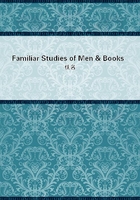
第49章
Friends crowded round Yoshida with help, counsels, and encouragement. One presented him with a great sword, three feet long and very heavy, which, in the exultation of the hour, he swore to carry throughout all his wanderings, and to bring back - a far-travelled weapon - to Japan. A long letter was prepared in Chinese for the American officers; it was revised and corrected by Sakuma, and signed by Yoshida, under the name of Urinaki-Manji, and by the soldier under that of Ichigi-Koda. Yoshida had supplied himself with a profusion of materials for writing; his dress was literally stuffed with paper which was to come back again enriched with his observations, and make a great and happy kingdom of Japan. Thus equipped, this pair of emigrants set forward on foot from Yeddo, and reached Simoda about nightfall. At no period within history can travel have presented to any European creature the same face of awe and terror as to these courageous Japanese. The descent of Ulysses into hell is a parallel more near the case than the boldest expedition in the Polar circles. For their act was unprecedented; it was criminal; and it was to take them beyond the pale of humanity into a land of devils. It is not to be wondered at if they were thrilled by the thought of their unusual situation; and perhaps the soldier gave utterance to the sentiment of both when he sang, "in Chinese singing" (so that we see he had already profited by his lessons), these two appropriate verses:
"We do not know where we are to sleep to-night, In a thousand miles of desert where we can see no human smoke."
In a little temple, hard by the sea-shore, they lay down to repose; sleep overtook them as they lay; and when they awoke, "the east was already white" for their last morning in Japan.
They seized a fisherman's boat and rowed out - Perry lying far to sea because of the two tides. Their very manner of boarding was significant of determination; for they had no sooner caught hold upon the ship than they kicked away their boat to make return impossible. And now you would have thought that all was over. But the Commodore was already in treaty with the Shogun's Government; it was one of the stipulations that no Japanese was to be aided in escaping from Japan; and Yoshida and his followers were handed over as prisoners to the authorities at Simoda. That night he who had been to explore the secrets of the barbarian slept, if he might sleep at all, in a cell too short for lying down at full length, and too low for standing upright. There are some disappointments too great for commentary.
Sakuma, implicated by his handwriting, was sent into his own province in confinement, from which he was soon released.
Yoshida and the soldier suffered a long and miserable period of captivity, and the latter, indeed, died, while yet in prison, of a skin disease. But such a spirit as that of Yoshida-Torajiro is not easily made or kept a captive; and that which cannot be broken by misfortune you shall seek in vain to confine in a bastille. He was indefatigably active, writing reports to Government and treatises for dissemination. These latter were contraband; and yet he found no difficulty in their distribution, for he always had the jailor on his side. It was in vain that they kept changing him from one prison to another; Government by that plan only hastened the spread of new ideas; for Yoshida had only to arrive to make a convert. Thus, though he himself has laid by the heels, he confirmed and extended his party in the State.
At last, after many lesser transferences, he was given over from the prisons of the Shogun to those of his own superior, the Daimio of Choshu. I conceive it possible that he may then have served out his time for the attempt to leave Japan, and was now resigned to the provincial Government on a lesser count, as a Ronyin or feudal rebel. But, however that may be, the change was of great importance to Yoshida; for by the influence of his admirers in the Daimio's council, he was allowed the privilege, underhand, of dwelling in his own house. And there, as well to keep up communication with his fellow-reformers as to pursue his work of education, he received boys to teach. It must not be supposed that he was free; he was too marked a man for that; he was probably assigned to some small circle, and lived, as we should say, under police surveillance; but to him, who had done so much from under lock and key, this would seem a large and profitable liberty.